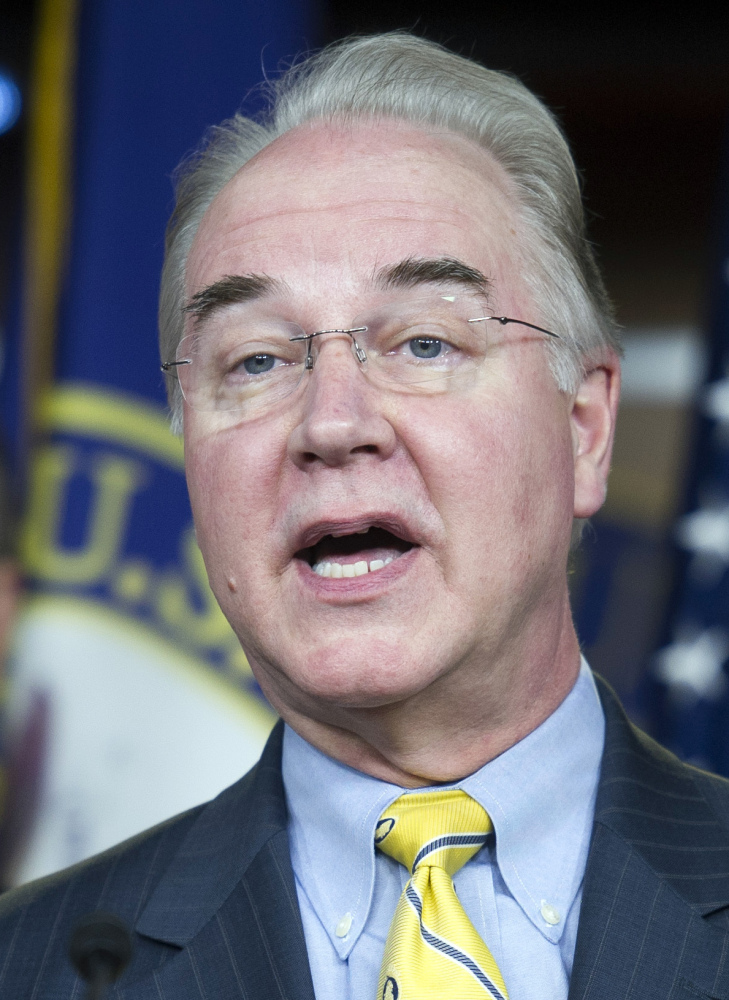WASHINGTON — Normally quarrelsome House Republicans came together Wednesday night and passed a boldly conservative budget that relies on nearly $5 trillion in cuts to eliminate deficits over the next decade, calls for repealing the health care law and envisions transformations of the tax code and Medicare.
Final passage, 228-199, came shortly after Republicans bumped up recommended defense spending to levels proposed by President Obama.
Maine’s representatives were split along party lines with Republican Bruce Poliquin voting in favor of the measuer and Democrat Chellie Pingree voting against it.
Much of the budget’s savings would come from Medicaid, food stamps and welfare, programs that aid the low-income, although details were sketchy.
Rep. Tom Price, R-Ga., chairman of the House Budget Committee, called the plan a “balanced budget for a stronger America” – and one that would “get this economy rolling again.”
Democrats rebutted that Republicans’ numbers didn’t add up and called their policies wrong-headed.
“People who are running in place today are not going to be moving forward under the Republican budget, they’re going to be falling back,” said Rep. Chris Van Hollen of Maryland.
The Republican-controlled Senate is likely to approve its version of a budget by week’s end.
The plans themselves are non-binding and do not require a presidential signature. Instead, once the House and Senate agree on a common approach, lawmakers will have to draft legislation to carry out the program that Republicans have vowed to follow in the wake of campaign victories last fall that gave them control of both houses of Congress.
Still, House passage of a budget marked a significant victory for Speaker John Boehner and the leadership, which has struggled mightily to overcome differences within a fractious rank and file.
An equally notable second triumph appeared on the horizon. Legislation to stabilize the system of payments to doctors who treat Medicare patients is expected to clear the House on Thursday, and Obama’s declaration of support enhanced its chances in the Senate.
It includes a requirement for upper-income Medicare beneficiaries to pay more for their coverage, a provision that Republicans hailed as a triumph in their drive to curtail the growth of benefit programs.
The budget outline itself provides few if any details of the cuts envisioned.
Send questions/comments to the editors.



Success. Please wait for the page to reload. If the page does not reload within 5 seconds, please refresh the page.
Enter your email and password to access comments.
Hi, to comment on stories you must . This profile is in addition to your subscription and website login.
Already have a commenting profile? .
Invalid username/password.
Please check your email to confirm and complete your registration.
Only subscribers are eligible to post comments. Please subscribe or login first for digital access. Here’s why.
Use the form below to reset your password. When you've submitted your account email, we will send an email with a reset code.